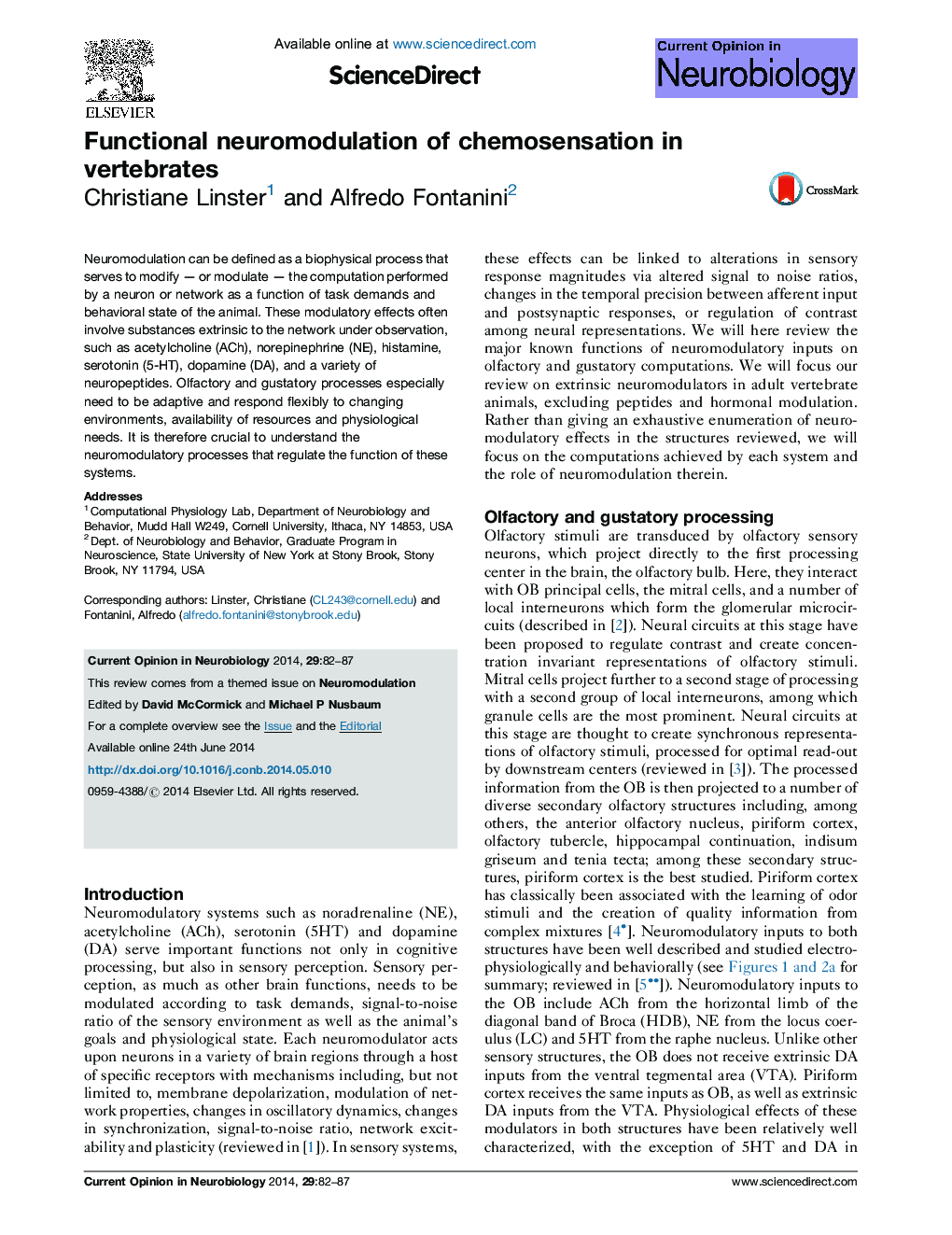| Article ID | Journal | Published Year | Pages | File Type |
|---|---|---|---|---|
| 4334198 | Current Opinion in Neurobiology | 2014 | 6 Pages |
•We lay out olfactory and gustatory information processing.•We summarize neuromodulatory inputs to olfactory and gustatory pathways.•We describe neuromodulation in olfaction and taste from a computational point of view.•Known cellular effects of neuromodulators and their functional relevance are summarized.
Neuromodulation can be defined as a biophysical process that serves to modify — or modulate — the computation performed by a neuron or network as a function of task demands and behavioral state of the animal. These modulatory effects often involve substances extrinsic to the network under observation, such as acetylcholine (ACh), norepinephrine (NE), histamine, serotonin (5-HT), dopamine (DA), and a variety of neuropeptides. Olfactory and gustatory processes especially need to be adaptive and respond flexibly to changing environments, availability of resources and physiological needs. It is therefore crucial to understand the neuromodulatory processes that regulate the function of these systems.
